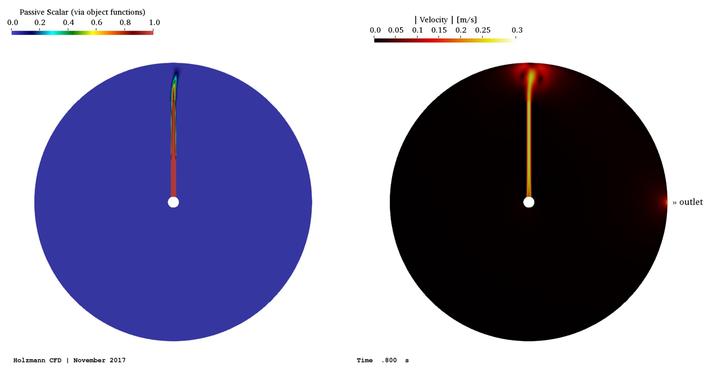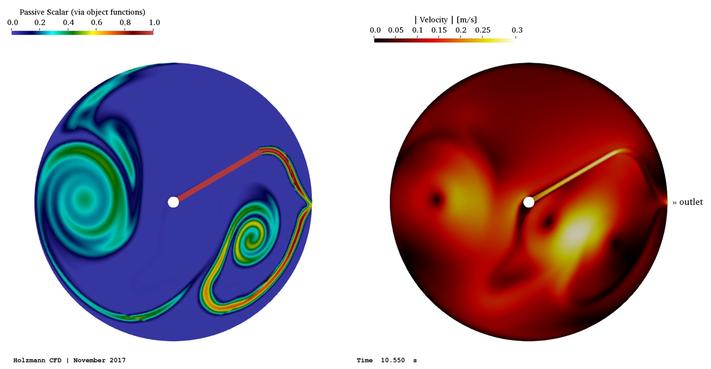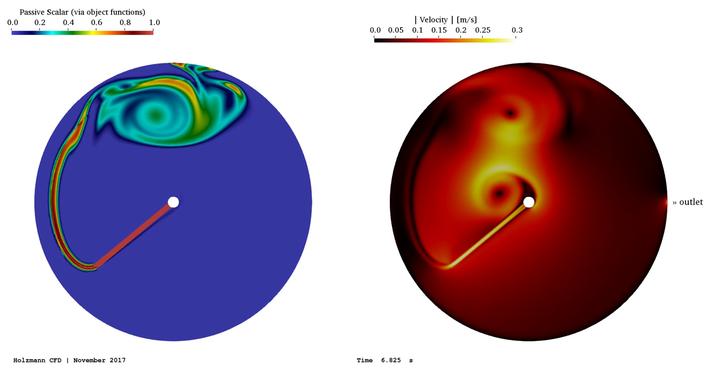2D Arbitrary Mesh Interface
pimpleFoam, arbitrary coupled mesh interface, dynamic mesh, coupling, decoupling, 2D
The following training case demonstrates the generation of a 2D arbitrary mesh interface (AMI) using snappyHexMesh and a set of different OpenFOAM® applications such as flattenMesh, extrudeMesh, createBaffles, mergeOrSplitBaffles, and so on. The main difference between other meshing procedures Tobias offers here is the usage of baffles during the meshing stage in snappyHexMesh. After the mesh is prepared and set-up, a pre-calculation is done (without motion). After four seconds of simulation time is reached, the dynamic aspect is considered, and the pipe is turned counterclockwise. The training case uses the typical run script with the included and well documented comments to makes it easier to understand the single steps.
Note: Since OpenFOAM® version 8, the rotation start in the »dynamicMeshDict« is corrected to represent the video. Now the powerful »Function1« class is used for representing the values for omega.



Published under the GNU General Public License 3
Over the last ten years, Tobias tried to publish a wide range of different materials related to OpenFOAM® and CFD. You know it much better than he does if the content is worth to be supported. If you want to thank Tobias for the work he did, feel free to tell the community your opinion about the work Tobias Holzmann is doing or you can email your thoughts directly to »
Support the work of Tobias Holzmann
The available OpenFOAM® training cases are tested and built for different OpenFOAM® versions (not distributions) on a Linux machine. During the tests, only the OpenFOAM Foundation version of OpenFOAM® was used. Furthermore, the following software packages are required for most of the training cases: Salome®, ParaView®, and for optimization tasks, one also needs the open-source software DAKOTA®. The OpenFOAM® cases might work with the ESI version of OpenFOAM® but it is not supported. For the OpenFOAM® extend project, the training cases will probably not work as the code diverged too much. Additionally, there is no support for Windows-based and MAC-based OpenFOAM® versions.
This offering is not approved or endorsed by OpenCFD Limited, producer and distributor of the OpenFOAM software via www.openfoam.com, and owner of the OPENFOAM® and OpenCFD® trade marks
Share the work on Your social network
Tobias would be grateful if you share his work on your social network in order to keep the OpenFOAM® community up to date. Furthermore, sharing the work will avoid that people investigate into topics, that are already prepared for your study such as the examples provided by Tobias Holzmann.


